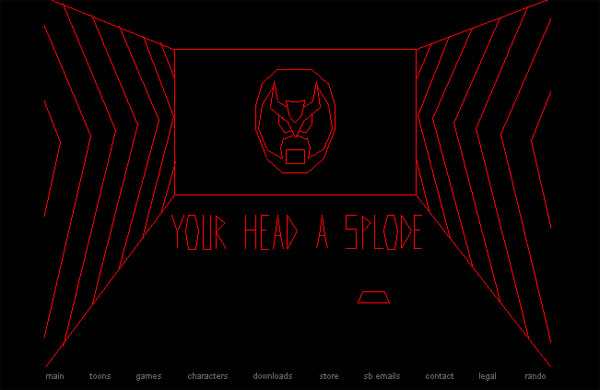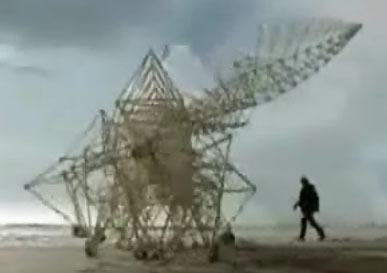I was having a discussion with some folks, and the conversation returned to what I consider to be problematic assumptions in the sustainability community regarding the nature of consumption. . . I tried to write something that explained my position carefully, but probably didn’t succeed too well. . .
—————————————————————————-
I want to start with an exploration of “consumption,” because I think if we start with problematic assumptions, it is difficult to come to a different conclusion than the one we often come to.
Here are a three of what I consider to be problematic assumptions that often arise in these types of discussions:
* Consumption, production, and industry are inherently “bad” activities.
* It is better not to consume, and we must not give in to our temptations.
* We are destroying ourselves and the planet with our activities, and we need to do less to avoid destroying more.
Humans are generally social animals, and, at this point, it’s safe to say that we are also commercial animals.
Our highly complex society, has evolved to support tremendous numbers of beings, far more than would have ever been possible prior to agriculture.
This highly complex society has tremendous numbers of specialized roles that we all perform in order to maintain this complex agentless adaptive system.
In order to perform our roles and functions, we need food, clothing, shelter, and transportation. But, lest this become some kind of grim death march, I believe we also need to have avenues to share and express ourselves, through arts, entertainment, family, and community.
What has happened recently, is that we have realized that some of the things that we started doing, because they seemed like good ideas at the time, have shown themselves to be problematic. I.e.: pesticides and modern agriculture seemed, for a time, to be a panacea, enabling food security on a level never seen before on the planet. Now, we have realized that there are some dangers inherent in that approach, and technological change is occurring.
Change can be a bit slower than we’d like– Generally speaking, people of the “old order” who were raised believing a certain set of ideas retire, or (every once in a while) change their minds when confronted with new evidence.
We are in the midst of a major changeover. We are learning that many of our modern “conveniences” actually come with heavy tolls. Be they toxic, polluting, unsustainable, or driving the extinction of one or multiple species. This is, by human standards, quite new information.
But, the transition is slow, and we can say here, with Upton Sinclair: “It is difficult to get a man to understand something when his salary depends on him not understanding it.” Entrenched destructive commercial behavior that provides the livelihoods for many people can only disappear by government regulation or by complete decimation by a disruptive competitor.
So we learn things, and try to make our lives and our processes a bit cleaner, tidier, and take much more of the complexity of the interactions of the natural world into account.
Now that we may have diffused some of the assumptions we make around “consumption” as inherently bad, perhaps we can look more clearly at “excessive” consumption:
It is correctly noted that people often perceive a hollowness in their lives, when they realize that they have been trying, in vain, to find joy or happiness in the acquisition of material goods.
However, a more general response might say that we perceive a certain hollowness in our lives when we are waiting for a better moment in the future for any reason, be it the anticipation of the feeling we will get after we get a new designer shirt, or the anticipation of the feeling we will get after we meet our “soul-mate.”
More broadly, waiting for a better moment in the future, or seeking a pleasurable state is actually a painful experience.
Generally speaking, it is radically uncertain what we are, and who we are, and why we exist. And, generally speaking, we have difficulty facing this radical uncertainty in the center of our beings.
We do know that we like feeling good, feeling secure, feeling cared for, and feeling special and important.
I would argue that it is in part our radical uncertainty about who, what, and why we are that causes us to feel like we need to distinguish ourselves from our fellow men and women.
In the attempt to distinguish ourselves, we are often willing to do things that will cause harm, either subtly or overtly, to our fellow beings.
Inside of ourselves, with this radical lack of objective information, we have difficulty being truly certain about anything, save for the fact that clearly *something* is happening. . . we EXIST.
Generally speaking, we can only see ourselves by the reflection we get from others. And, so it follows that, feeling confined to *this* particular life and existence, we would like to feel like it is a good one, a special one, a strong one. . . Otherwise, we face a certain deafening arbitrariness about the whole bizarre project.
If I am only me, why shouldn’t I try to make it a good me, a strong me, a special me? However, if we try to “better” ourselves at the expense of others, this is where our (as a globe) problems begin.
Inasmuch as fear of death enters our picture, consciously or unconsciously, we also may behave in ways that are an attempt to “better” ourselves at the expense of other.
The challenge, however, is that people generally will only stop making excessive consumption decisions after they realize that that is not helpful: that that is not bringing them what they were hoping for, which is a sense of lasting happiness and fulfillment.
I would argue, that this yearning for lasting happiness and fulfillment is driven largely by a fear of pain and death, and our tremendous uncertainty about who, what, and why we are.
Without holding ideas or concepts about who, what, and why we are, perhaps it is possible to see from a more inclusive perspective, a perspective outside of pleasure/pain that doesn’t have boundaries separating one being from another?
Looking from this wider perspective, that can objectify the entire thought structure, transcending the dualities of mind, we see that what we once considered our “inner reality” or our personhood is not a solid entity, but rather an evanescent bundling of thoughts.
In the absence of belief in the reality of our thought stream, separation from others is seen to be an illusion, and attempting to improve one’s own experience at the expense of another’s is no longer a plausible way to behave, and we are no longer waiting for a better moment than the present.
When seen from this perspective, available to each of us, a certain kind of ease of being arises, that allows us to work together quite a bit more easily.
____________
So: Let’s transform consumption to processes that are clean, so that we can purge the “inherent badness” that underlies our assumptions about what it means to consume.
Next: Let’s realize that we cannot meet our non-material needs with material goods.
After that: Let’s realize that our fear of unknowing and our fear of death lead to our inability to see others as fundamentally not separate from what we are. Seeing this lack of separation as a reality, we may come to know that we don’t exist quite the way we thought we did, and we can see that attempting to improve one’s own experience at the expense of another’s is not appropriate. Most importantly, we are no longer waiting for a better moment than the present.
Finally: Let’s work together to make this a more pleasant place for everyone.
And we don’t have to work on these in any particular order, either. . .




